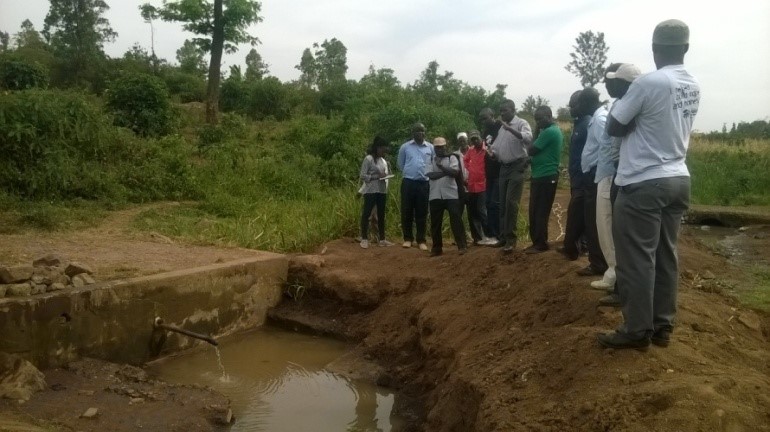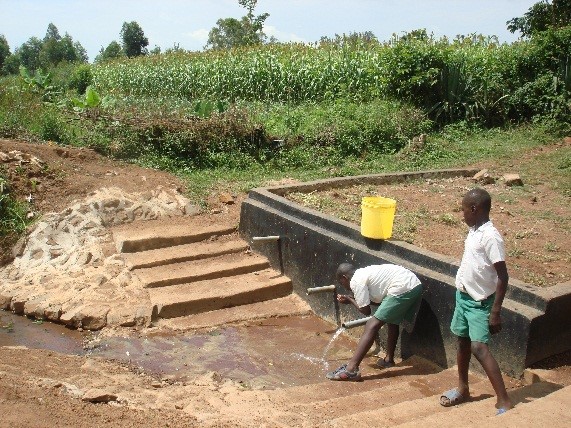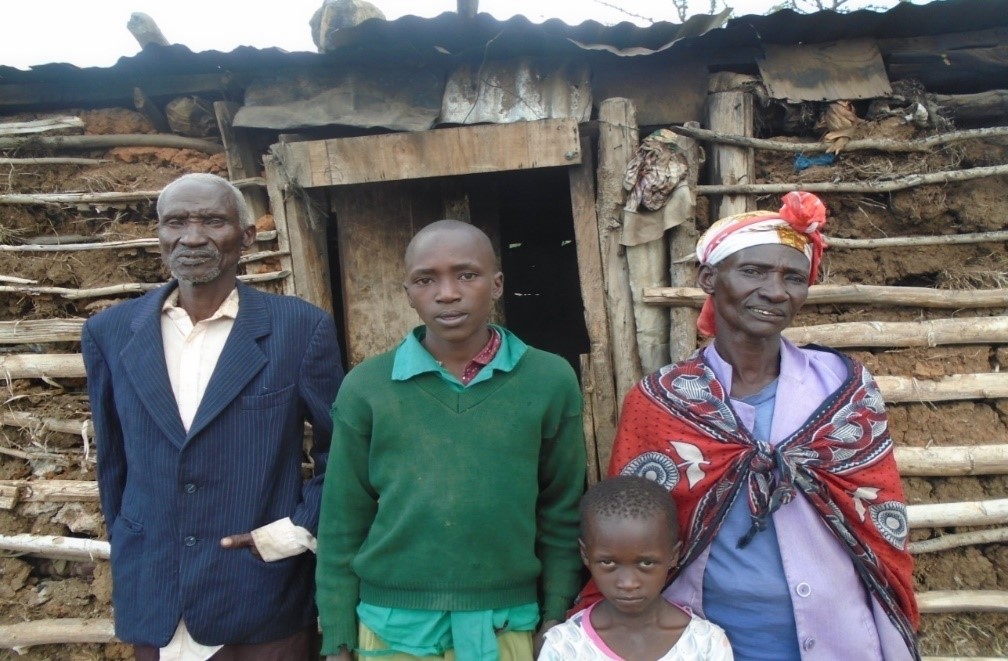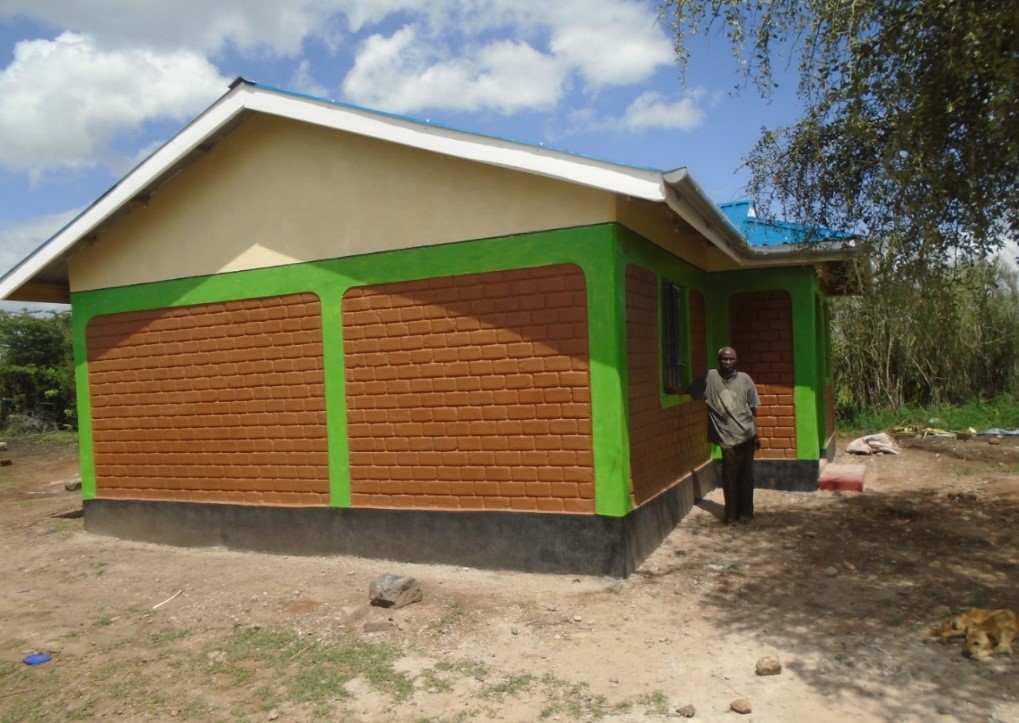Habitat for Humanity Kenya through its Vulnerable and Orphaned Group Housing project aims to assist vulnerable families that earn less than a dollar a day, are in need of decent housing and lack access to water and proper sanitation facilities. Habitat Kenya recognizes that housing and WASH (water, sanitation and hygiene) services are inseparable basic human needs. In order to achieve some degree of economic empowerment in the communities where we intervene in, we do endeavor to develop the infrastructure that can support the most minimal level of public services i.e. housing, water, sanitation, sewage, and health.
Below are some of the examples of Housing and WASH interventions that we have been able to achieve in both Laikipia and Homabay Counties:
Case Study: Rehabilitation of Community Water Points in Homabay County
Homabay County is prone to very dry spells leading to lack of sufficient clean and safe water for the community members. This is especially so in the areas where Habitat for Humanity Kenya carries out its interventions. Women bare the brunt of this problem since it is their responsibility to take care of their homes. They are forced to wake up as early as 3.00 AM to go and fetch water in very distant places.
To address this, Habitat for Humanity Kenya partnered with the local administration in three villages to rehabilitate their water points. These are underground springs that had experienced blockage due to siltation and lack of servicing, hence could not supply enough water for the community members.
Below is a before and after photo of Habitat Kenya’s rehabilitation work.


Impact of the rehabilitated water points to the community:
- There is enough clean water for the community.
- Women no longer walk for long distances to fetch water. Their security is also assured since the water points are located close by.
- Before rehabilitation of the water points, the community would fetch water from the ground using bowls but after the rehabilitation they now fetch water directly from pipes which makes it safer for drinking.
- The community contributes Kshs. 20 ($2 cents) every month for maintenance of the water point.
Case Study: Rain Water Harvesting for Homes
73-year-old Ebeny hails from Kariunga Village in Muramati location of Laikipia County. Unfortunately for Ebeny, life has not given him the luxury of slowing down in his old age, but rather he and his wife have had to take care of three young children while living in a shanty that was nearly collapsing. Of the three children, two are in school while one dropped out. Both Ebeny and his wife do menial jobs earning a meager income.
Ebeny and his family could not access clean water in their locality. Water for drinking and other household uses is drawn directly from the streams and shallow hand-dug wells which are contaminated, leading to a breakout of waterborne diseases in the family.
Habitat Kenya’s Intervention
With the generous support of our donors, Habitat for Humanity Kenya was able to build a new and stable house for Ebeny and his family. The family also got a 2000 litre water tank installed to harvest rain water for their day to day use. In addition to this, Habitat Kenya trained Ebeny and his neighbors on Water Sanitation and Hygiene strategies for preventing water contamination, proper water storage in safe vessels that are designed to prevent re-contamination and on general hygiene habits. As a result of this improvement in household sanitation, Ebeny’s children are now thriving in their studies and their health has greatly improved.
Ebeny’s Remarks to Habitat for Humanity
“We remember Habitat for Humanity Kenya every day for building a house for us. We are also grateful for the hygiene training. Nowadays, my wife and I are educating people in this area about the dangers of fetching water directly from the stream. I tell my friends, family and colleagues of the importance of keeping, saving and using clean water to keep healthy” .
“We are very grateful to Habitat for Humanity and are very happy with what they have done in our community. I will ensure there is a hand washing facility near the latrine that they built for us,” added Ebeny’s wife.


